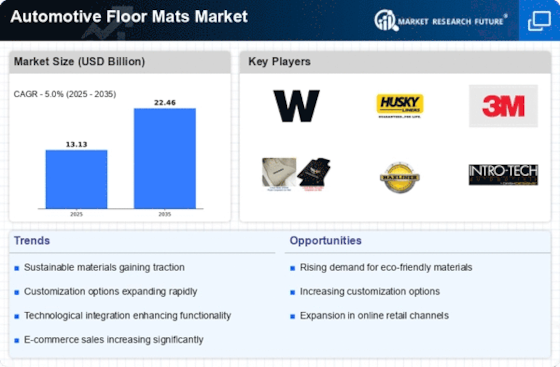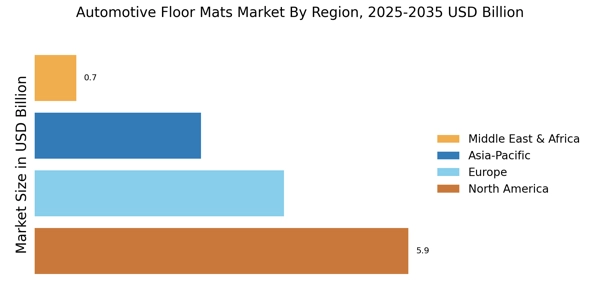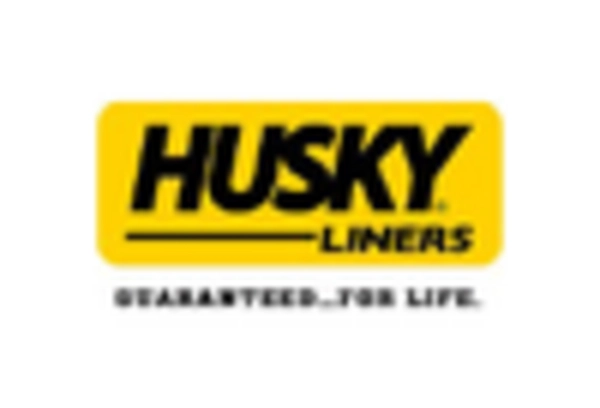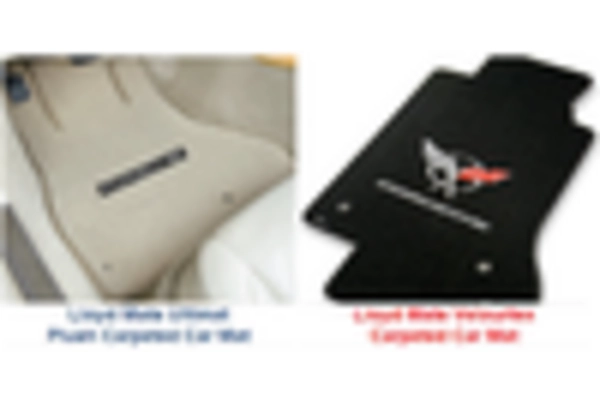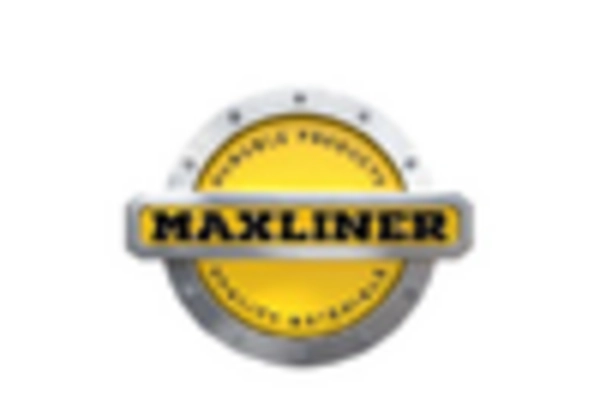Rising Vehicle Sales
The Automotive Floor Mats Market is experiencing a notable surge due to the increasing sales of vehicles across various segments. As more consumers opt for personal vehicles, the demand for high-quality floor mats rises correspondingly. In 2025, the automotive sector anticipates a growth rate of approximately 4.5%, which directly influences the floor mats market. This growth is driven by factors such as urbanization, increased disposable income, and a shift towards personal mobility. Consequently, manufacturers are focusing on producing durable and aesthetically pleasing floor mats to cater to the evolving preferences of consumers. The expansion of the automotive industry is likely to bolster the Automotive Floor Mats Market, as vehicle owners seek to enhance the interior of their cars with premium accessories.
Growth of E-commerce Platforms
The rise of e-commerce platforms is reshaping the Automotive Floor Mats Market by providing consumers with greater access to a wide range of products. Online shopping has become increasingly popular, allowing consumers to compare prices, read reviews, and make informed purchasing decisions from the comfort of their homes. This shift towards online retail is expected to continue, with e-commerce sales in the automotive accessories sector projected to grow by 7% annually. As a result, manufacturers and retailers are investing in their online presence to reach a broader audience. The convenience and variety offered by e-commerce platforms are likely to enhance the visibility of automotive floor mats, thereby driving sales and expanding the Automotive Floor Mats Market.
Technological Innovations in Materials
The Automotive Floor Mats Market is witnessing a transformation driven by technological innovations in materials. Manufacturers are increasingly utilizing advanced materials such as thermoplastic elastomers and recycled materials to produce floor mats that are not only durable but also environmentally friendly. These innovations are appealing to a growing segment of eco-conscious consumers who prioritize sustainability in their purchasing decisions. The introduction of features such as anti-slip surfaces and easy-to-clean designs further enhances the functionality of floor mats. As the automotive industry continues to evolve, the integration of technology in product development is likely to play a crucial role in shaping the future of the Automotive Floor Mats Market, potentially leading to increased market share for companies that embrace these advancements.
Customization and Personalization Trends
The trend towards customization and personalization is significantly influencing the Automotive Floor Mats Market. Consumers are increasingly seeking products that reflect their individual style and preferences, leading to a rise in demand for custom-fit floor mats. This trend is particularly pronounced among younger consumers who value unique and personalized automotive accessories. Manufacturers are responding by offering a variety of designs, colors, and materials, allowing consumers to tailor their floor mats to their specific tastes. The customization trend is expected to drive market growth, with projections indicating a potential increase in sales of personalized automotive accessories by 6% annually. This shift presents a lucrative opportunity for businesses within the Automotive Floor Mats Market to differentiate themselves and capture a larger share of the market.
Increased Awareness of Vehicle Maintenance
There is a growing awareness among vehicle owners regarding the importance of maintaining their vehicles, which significantly impacts the Automotive Floor Mats Market. Consumers are increasingly recognizing that high-quality floor mats not only enhance the aesthetic appeal of their vehicles but also protect the interior from dirt, moisture, and wear. This awareness is leading to a shift in purchasing behavior, with more consumers willing to invest in premium floor mats that offer better protection and longevity. The market for automotive accessories, including floor mats, is projected to grow at a compound annual growth rate of around 5% in the coming years. This trend indicates a robust opportunity for manufacturers to innovate and offer products that meet the rising expectations of consumers in the Automotive Floor Mats Market.


